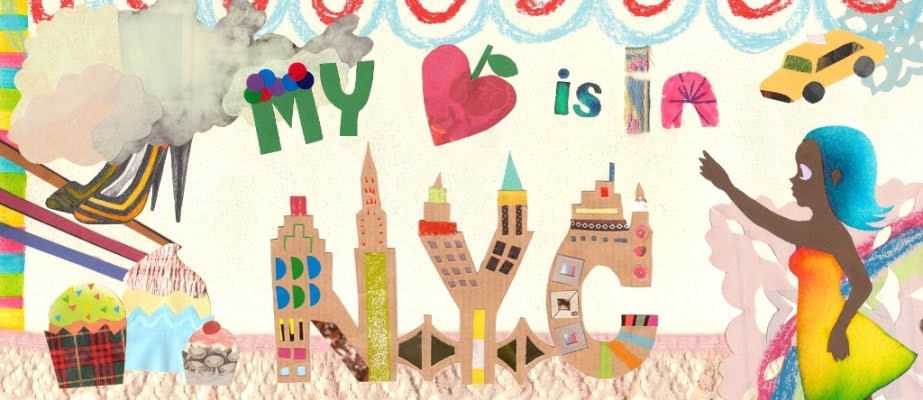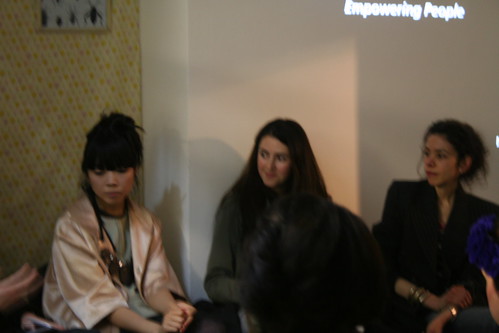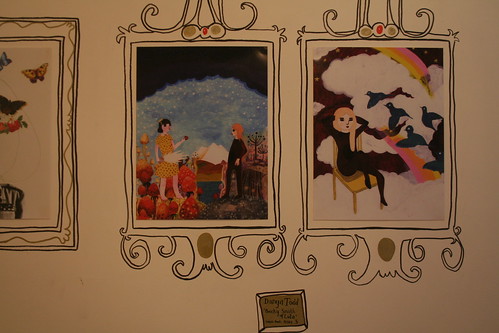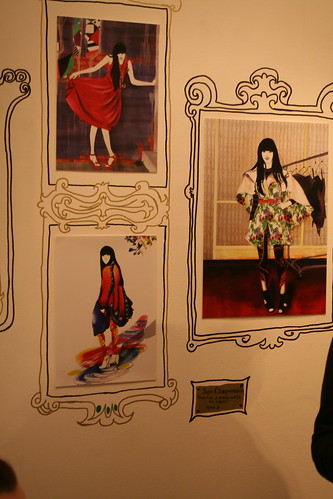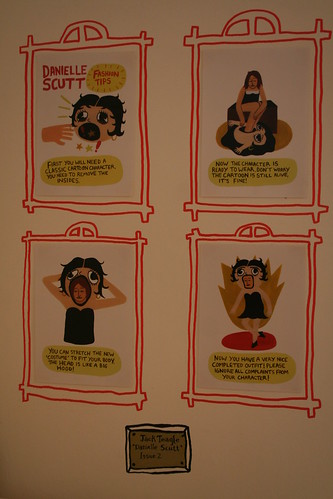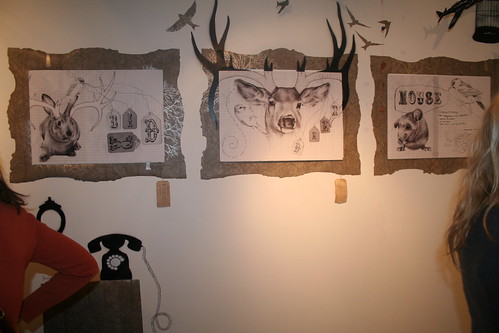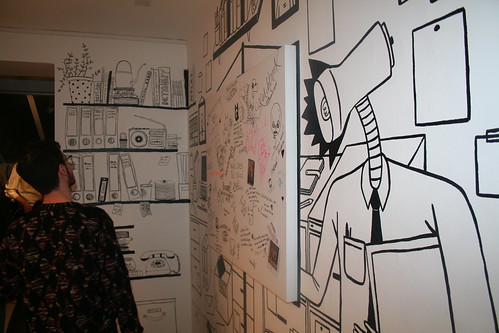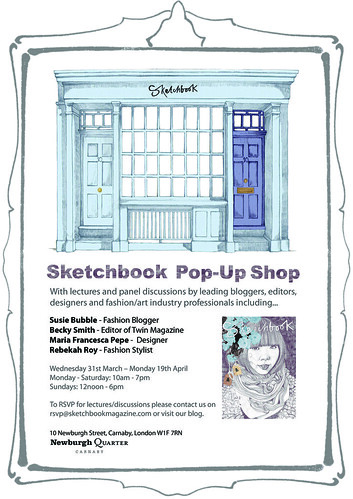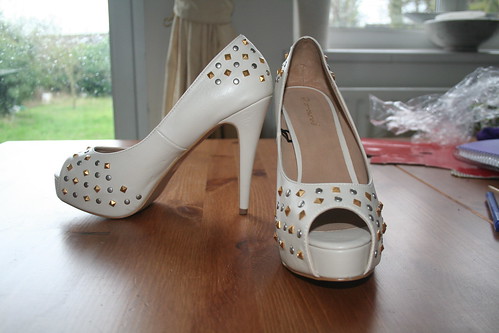Today I went to the Print vs Online panel discussion over at Sketchbook Magazine's pop-up shop which was very insightful with lots of thought-provoking points mentioned. The panel was made up of blogger Susie Bubble, graphic designer and writer Adrian Shaughnessy, trend director at Style Sight Sandrine Maggiani and Becky Smith, previously of Lula Magazine and now of Twin Magazine.
The moderator, art writer Clare Acheson, opened the discussion by inviting the panel members to talk about what they do and if they were more print or online based. Adrian believes in a hybrid future between print and online. He says there will always be a place for books and it's just a matter of finding a way to have best of both worlds. Becky talks about how Twin, unlike Lula, is more a book than a magazine (hence the term Mook) which is completely online with daily updates of the blog and video content. Susie dabbles in both worlds but is primarily online and Sandrine embraces both worlds.
The panel then go on to discuss the differences between print and online and the pros and cons of each medium. One of the points that were raised was the ease of the web in its navigation and in setting up a blog or website, giving individuals a platform to express their opinions without the costs and other setbacks with setting up a printed publication. However with the rise of bloggers, especially fashion bloggers, there's almost a blogger overload (as Becky called it) with bloggers getting younger and younger all trying to become blogger celebrities - blogebrities, like the Bryan Boys and Tavis, and they all want to rise up the ranks and get to seat front row at fashion shows. Can we deal with these many bloggers, should there be regulations for bloggers? Will it be possible to regulate, afterall isn't the beauty of having a blog the fact that you have freedom of speech? Susie and Becky both think blogging is simply another established way of media, especially with fashion. However is it just a thing of the moment, or will it die down eventually?
Going back to print, everyone generally agrees that it's something that shouldn't necessarily die out. It's always nice to have something tangible to flick through and also to be able to disconnect from technology, not having to always read things off a screen. Adrian does make a point that the next generation growing up might not care so much about books, especially if they have gadgets like the Apple iPad. He also says that magazines will probably be fine and newspapers are more likely to become extinct, if you can read all the news on your mobile applications or on BBC online why would you buy a newspaper? Susie agrees and points out that editorial and long features are the positive points about magazines and to that effect bite-size mumbo jumbos and revamped press releases will eventually become more redundant.
A question was asked by the moderator: how do you make a living as a blogger (because with online you expect the content to be free) and also as a magazine like Twin that has very little advertising? Becky and Susie agreed that it was hard, especially with the recession but it's all about being creative. Adrian tells about how people would often sell books or DVDs after talks or events to generate some income and most often have a day job to fund their blogging - a strange hybrid economy he calls it. Sandrine brings up the importance of collaborations and gives the example of Garance Dore collaborating with Vogue Online and stresses the point of being multi-talented. Susie then brings up the point that of course bloggers like Garance and Scott Schuman of The Sartorialist are brands in their own rights and of course this won't apply to every blogger.
The discussion continues on the internet and advances like video and 3D and now Augmented Reality (AR) and and how it will change the way we communicate and media as a whole (AR was first used by Esquire Magazine and recently by Grazia Magazine). Sandrine suggests it as a way for publishers to offer exclusive content only to subscribers but Susie comments that she wonders if locking content will actually hinder people as opposed to letting them access it for free.
Mini Cupcakes from Love Bakery after the panel discussion
The discussion brought up a lot of other points but it would definitely make too long a post. I did go away from it with two big questions in mind:
1. Just WHERE will technology take us? With 3D printed shoes and AR bar codes in magazines meaning you can actually BE in the photo shoot what else can we expect? Is anyone else even slightly worried about where we could be in say 5 years?
2. Bloggers and blogging, how long will the fascination last for? Especially with some blogs containing less text and more pictures maybe we'll just start having photo/video blogs and no one will even care about words anymore.
